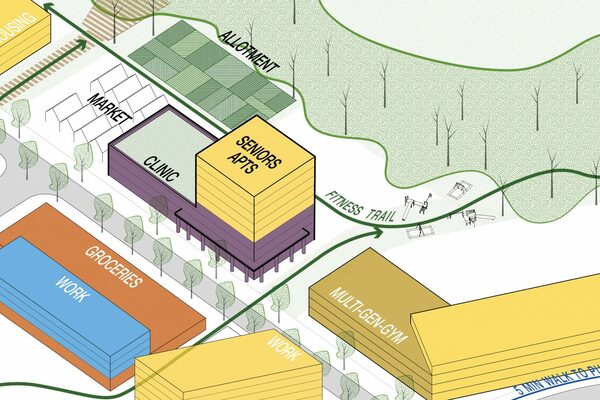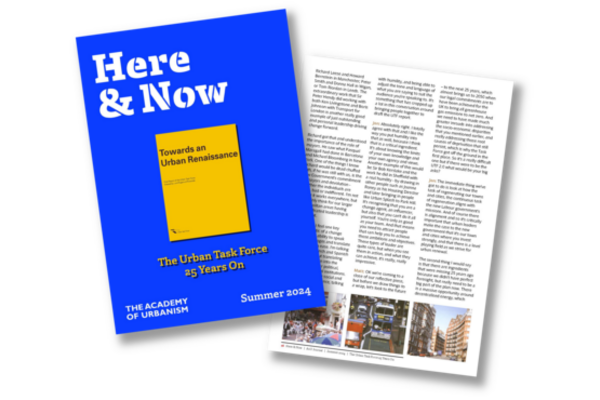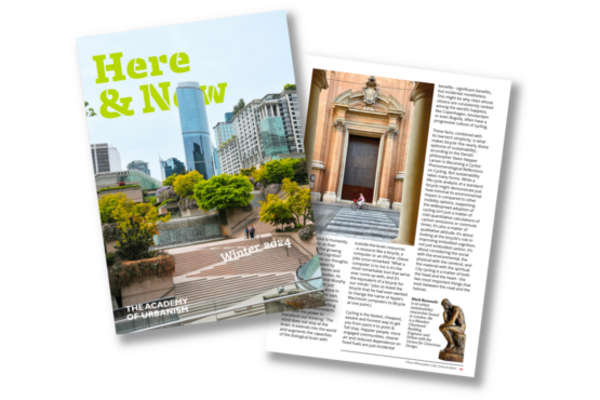The July edition of Here & Now, the Journal of The Academy of Urbanism, is now online. The format sees a set of new articles each month along with a chance to catch up on some of the articles from last month.
This month Kathryn Firth writes about the Civic and the Suburb, Nicholas Falk draws argues that trams are the future, Steven Bee reviews the book Why Face to Face Still Matters and Vicky Payne asks what happened to all the female planners in history (apart from the one we all know about). All this together with four new My Place contributions curated by John Mullin.
Visit the Journal website, or click on one of the individual articles below.
ARTICLES
The Civic in the Suburbs
Civic spaces are fundamental to urban life. Kathryn Firth asks how we can reintegrate the civic into suburban exurban spaces like malls and business parks
Rapid Transport and Urban Recovery
The AoU recently organised a virtual study tour of four tram systems. Dr Nicholas Falk who organised the event argues that trams are the future.
Death of the city?
Are cities really so vulnerable to the long term effects of Covid-19? Martin Crookson argues that reports of the death of the city are much exaggerated. Based on his book written with Jonathan Reades, he argues that face to face still matters.
MY PLACE
Millhouses Park, Sheffield
Harshada Deshpande: Urbanist
Ripley Castle
Sir Thomas Ingilby: Owner
Herceg Novi, Montenegro
Aleks Milentilevic: Urbanist
Wilberforce House Museum, Hull
Robin Diaper, Curator of Maritime & Social History
REVIEW
The Buzz of Urban Life
Following Martin Crookson’s article, Steven Bee reviews the book 'Why Face to Face Still Matters' written with Jonathan Reades.
Paradise Lost?
Hilary Kolinsky reviews a new book on lessons from the British and French New Towns edited by David Fée, Bob Colenutt, Sabine Coady Schabitz.
Children will save the city!
Marketa Nosalova reviews Tim Gill’s new book Urban Playground: How Child Friendly planning and design can save cities.
OPINION
Can you name a second famous female planner from history?
Vicky Payne argues that it's time to celebrate some of the lesser-known pioneers of planning.
Planning without end
The Idiot’s law of planning states that the level of objections raised by a planning authority to a submitted plan is a constant and bears no relationship to the quality of the scheme.









